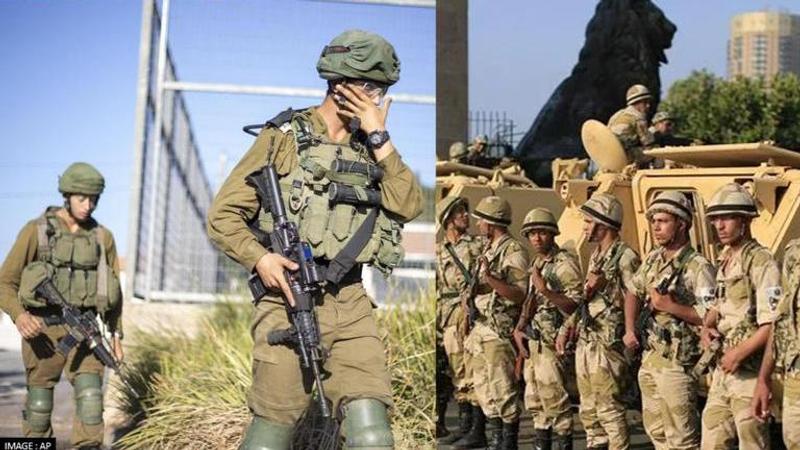Published 21:46 IST, November 8th 2021
Israel agrees to increased presence of Egyptian forces in Rafah area of Gaza strip
The Israeli military announced on Monday, November 8, that it has agreed to allow a greater Egyptian army presence in the Rafah area of Israel's southern border

The Israeli military announced on Monday, November 8, that it has agreed to allow a greater Egyptian army presence in the Rafah area of Israel's southern border. The Israeli Defense Forces (IDF) announced that it has signed an amendment to the Camp David Accords with Egypt's military, allowing for a strengthening of forces there.
The Israeli State Security Cabinet, led by Israeli Prime Minister Naftali Bennett, approved the amendment. The Israeli Defense Forces shared the information on Twitter.
The post read, "The Joint Military Committee between the IDF and the Egyptian Armed Forces held a meeting yesterday, during which issues the two armies face were discussed. We will continue working together to ensure security along our border."
The exact number of Egyptian forces that will be added has not been disclosed yet. Rafah houses the crossing between Egypt and the Hamas-ruled Gaza Strip. Both Israel and Egypt maintain a strict blockade on the territory. According to the statement released by IDF, the agreement was reached in a meeting held in Egypt of the joint military committee.
In recent months, security cooperation between Israel and Egypt has become increasingly public. Egyptian Intelligence Chief Abbas Kamel met with Israeli PM Bennett in Israel and is expected to visit again in the coming weeks, according to Israeli media.
Egypt frequently plays a mediating role between Israel and Hamas. In May, after a 11-day war between the two, Egypt helped broker an unofficial cease-fire. On September 17, 1978, Egyptian President Anwar Sadat and Israeli Prime Minister Menachem Begin signed the Camp David Accords. These agreements resulted in the 1979 peace treaty between Israel and Egypt. It was Israel's first peace treaty with an Arab country.
Bennett rejects promised reopening of the US mission for Palestinians in Jerusalem
Earlier on November 8, Israeli Prime Minister Naftali Bennett has rejected the promised reopening of the main US diplomatic mission for Palestinians in Jerusalem, claiming that such an office would take up too much space in the city. The Trump administration closed the US consulate in Jerusalem, which had served as the Palestinians' de facto embassy for many years.
Secretary of State Antony Blinken has promised to reopen it, which Israel claims would jeopardise its sovereignty over the city. The reopening could aid in the repair of US-Palestinian relations, which were severed under Trump. When asked about the consulate during a press conference on Saturday, Bennett reiterated Israel's position on Jerusalem. "There's no room for another American consulate in Jerusalem," he said, according to AP. Jerusalem is regarded as Israel's eternal and undivided capital.
Image: AP
Updated 21:46 IST, November 8th 2021




